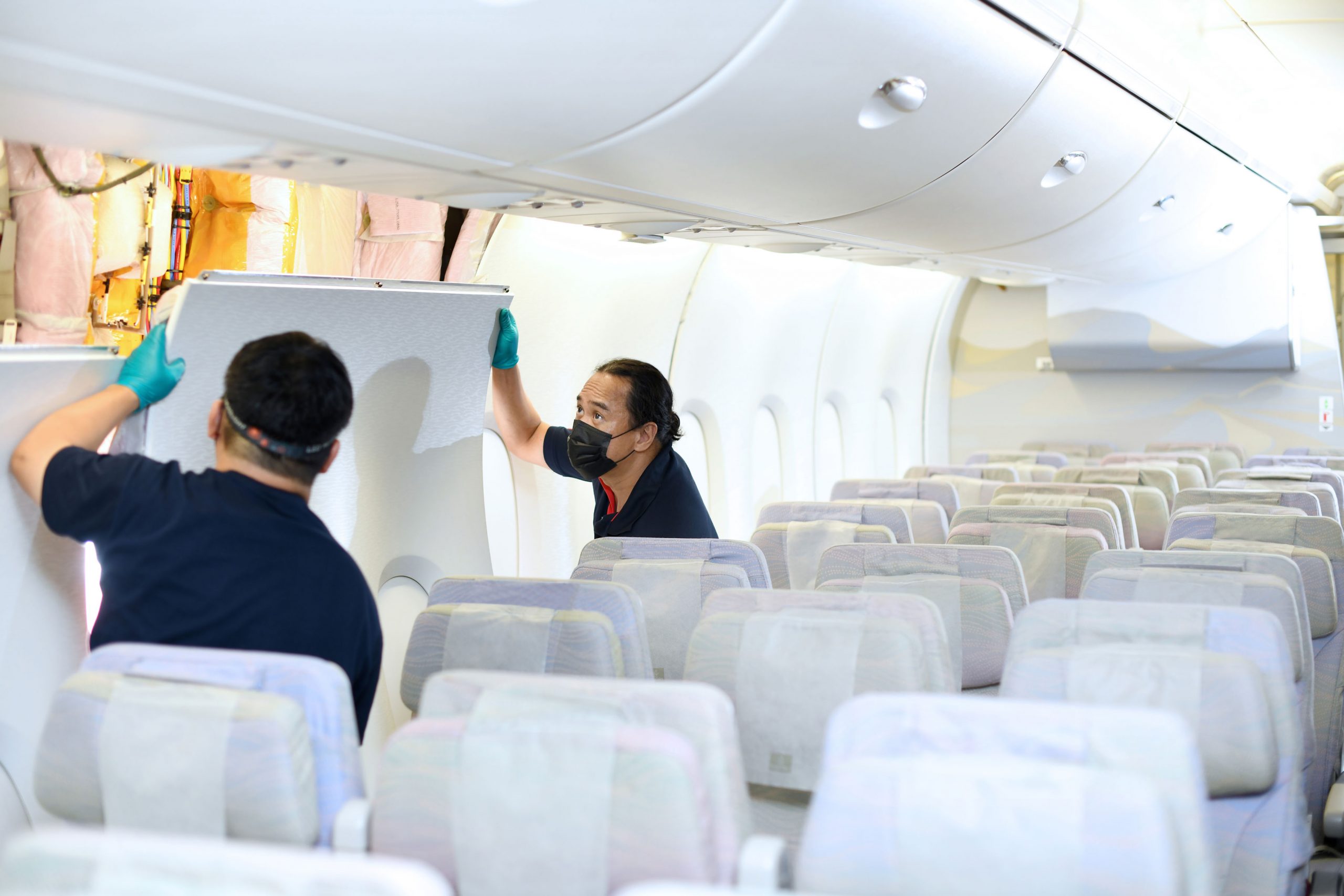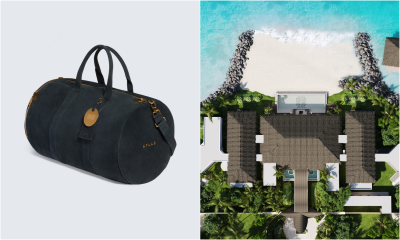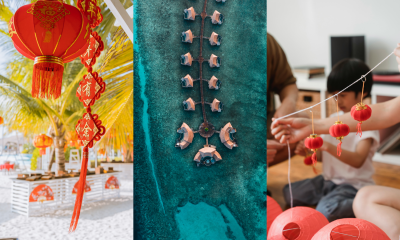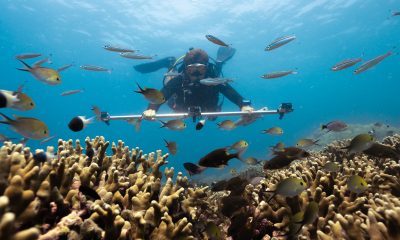International
Fists, stones and clubs: China and India’s brutal high altitude, low-tech battle

India and China’s militaries have some of the world’s most sophisticated modern weaponry, but their deadliest scrap in over 50 years was fought using fists, rocks wrapped in barbed wire and clubs studded with nails.
There is an understanding between the nuclear-armed neighbours that despite their decades-old failure to demarcate their huge border, their troops in the disputed and inhospitable region will not use firearms.
The several hours of scuffles on Monday, reportedly involving hundreds of soldiers around 4,500 metres (15,000 feet) up in the Himalayas, left at least 20 Indians dead, according to the Indian army.
Indian media claim that 43 Chinese were also killed or seriously hurt — Beijing is yet to give casualty numbers — making it the deadliest encounter since 1967 and the first deaths in fighting since 1975.
But unlike then, this time no shot was fired, with the victims bludgeoned with crude hand-made weapons, hit by stones or punched and shoved off a ridge onto rocks and an icy river below, reports and sources indicate.

Post-mortems so far showed that the “primary reason for death is drowning and it looks like they fell from a height into the water because of head injuries,” one Indian official told AFP.
The NDTV and Network 18 television channels reported that 16 of the Indian soldiers were killed with blunt objects and four fell into the river.
‘Rocks in barbed wire’
According to broadcaster India Today, last week Chinese forces returned and camped in an area that they had previously withdrawn from. Indian troops “dismantled” the camp and a scuffle left several soldiers injured.
The Chinese returned in larger numbers over the weekend and on Sunday stones were thrown. The next evening, on a high ridge with a big drop towards the fast-flowing Galwan river, clashes erupted.
Matters escalated rapidly and several Indian soldiers tumbled into the icy water, while an unarmed Indian patrol team led by Colonel Santosh Babu set out to parley with the Chinese.

But the Chinese refused to budge and attacked the Indians with boulders, rocks wrapped with barbed wire and clubs studded with nails, Indian reports said. Colonel Babu was seriously injured. He would later die.
Forty minutes later, the same unit led by a major returned and further fighting broke out, this time reportedly involving hundreds of soldiers and the Chinese outnumbering the Indians, raging until after midnight.
“When they (the Indian soldiers) were encountered by the Chinese soldiers they were overwhelmed and many were pushed down a harsh rocky slope,” one security source told AFP.
“They came hurtling down like free falling objects.”
‘A cold desert’
Colonel S Dinny, who until 2017 commanded an Indian battalion in the region, said that the terrain is “extremely treacherous”, with troops having to climb as high as 5,200 metres.
“It’s a cold desert,” he told AFP. “It takes a toll on the body and mind. The oxygen level is only 60 percent of what is available in cities like Delhi, Mumbai.”
And it’s also confusing.
The area “is not demarcated on the map, there is no boundary. The maps have not even been exchanged so that the other person knows what someone is claiming. There are no boundary markers,” Dinny said.

But retired lieutenant general DS Hooda, who headed the army’s Northern Command, said that there are detailed protocols that have ensured misunderstandings usually do not escalate — starting with the no-guns policy.
“If patrols come face to face, they will stand at a distance and unfurl banners. India’s banner will show the Chinese are in their territory with a ‘Go Back’ and vice versa for China,” Hooda told AFP.
“These are the sort of protocols that have been laid down by both countries and largely these protocols have been followed in the past and things have remained peaceful,” he said.
“What we are seeing right now is a complete breakdown of the protocol,” he said.
“In our time we revisited our protocol and our rules of engagement so that any disagreements can be handled in a more military fashion — rather than fighting it out like goons on the street.”
Reporting and photos: AFP
International
Nika Zorjan’s ‘V Postelji’ music video showcases timeless beauty of Maldives

Released just three weeks ago, Nika Zorjan’s latest music video, ‘V Postelji’ (meaning “In Bed”), has captivated audiences with its stunning cinematography set against the breathtaking backdrop of the Maldives. Directed by videographer Niko Karo, who accompanied Nika to film the video, the project was organised by Moji Maldivi, an agency based in Slovenia dedicated to promoting the Maldives as a premier holiday destination in Balkan region.
The video beautifully captures Nika strolling through serene pathways shaded by iconic coconut palm trees at Villa Park, later walking along the sun-kissed beaches of Villa Nautica, and finally enjoying the golden sunset on a bed at the beach of Furaveri Maldives. Each scene showcases the natural beauty and tranquil ambiance of the Maldives, enhancing the emotional depth and visual splendour of the music video.
Nika Zorjan, renowned as a Slovenian pop star and Eurovision contestant, has also gained fame for her cover songs, including her most popular rendition of Sia’s Cheap Thrills, which has amassed nearly 50 million views on YouTube, with over 60 million total views on the platform. “Shooting a video in the Maldives is heavenly,” she added. Filmed in one of the world’s most captivating tourist destinations, the Maldives serves as more than just a scenic backdrop; it becomes an integral part of the video’s narrative.
V Postelji not only showcases Nika Zorjan’s musical prowess but also pays homage to the Maldives’ timeless allure and cultural richness. The video has resonated deeply with audiences, garnering praise for its artistic vision and the mesmerising beauty of the Maldivian landscape. The lush greenery, crystal-clear waters, and pristine beaches depicted in the video create a sense of paradise that complements the song’s evocative lyrics.
As viewers continue to immerse themselves in the captivating visuals and emotive melodies of V Postelji, it reinforces the Maldives’ reputation as a destination where natural beauty and tranquility converge effortlessly. Nika Zorjan’s collaboration with Niko Karo underscores their shared appreciation for the Maldives’ serene ambiance and its ability to inspire creativity and emotional expression. This partnership, facilitated by Moji Maldivi, highlights the agency’s dedication to showcasing the Maldives as an unparalleled holiday destination to the Balkan market.
Featured
Emirates undertakes largest known fleet retrofit project

Emirates has kick-started its plans to upgrade the entire interior cabins of 120 Airbus A380 and Boeing 777 aircraft – two of the largest commercial aircraft types in service today.
This ambitious project, representing a multi-billion dollar investment to ensure Emirates’ customers “fly better” for the coming years, officially commences in November and is managed entirely by Emirates’ Engineering team.
The target is to completely retrofit four Emirates aircraft from start to finish every month, continuously for over 2 years. Once the 67 earmarked A380s are refreshed and back in service, 53 777s will undergo their facelift. This will see nearly 4,000 brand new Premium Economy seats installed, 728 First Class suites refurbished and over 5,000 Business Class seats upgraded to a new style and design when the project is complete in April 2025.
In addition, carpets and stairs will be upgraded, and cabin interior panels refreshed with new tones and design motifs including the iconic ghaf trees which are native to the UAE.

No other airline has handled a retrofit of this magnitude in-house, and there’s no blueprint for such an undertaking. Therefore Emirates Engineering teams have been planning and testing extensively, to establish and streamline processes, and identify and address any possible snags.
Trials began on an A380 in July, where experienced engineers literally took each cabin apart piece-by-piece and logged every step. From removing seats and panelling to bolts and screws, every action was tested, timed and mapped out. Potential impediments to completing the installation of Emirates’ new Premium Economy Class or the retrofit of the remaining three cabins in just 16 days were flagged and documented for expert teams to review and address.
As part of the programme, new purpose-built workshops will be set up at Emirates Engineering to repaint, re-trim and re-upholster Business and Economy Class seats with new covers and cushioning. First Class suites will be carefully disassembled and sent to a specialised company to replace the leather, arm rests and other materials.
From the trials, Engineers discovered several unexpected solutions for instance: that existing food catering trucks could be easily repurposed to move parts destined for refurbishment from the aircraft to the workshop for their refresh, as these vehicles had doors of the right width and offer sufficient space.
Until the retrofit programme starts in earnest in November, a cross-disciplinary team has been assembled to regularly review the planning process, address any issues, and track updates on various aspects of the project such as procurement, staffing, and training.
Emirates’ new Premium Economy cabin class, which offers luxurious seats, more legroom, and a service to rival many airlines’ business offering, is currently available to Emirates customers travelling on popular A380 routes to London, Paris, Sydney. More customers will be able to experience the airline’s new Premium Economy cabins starting from year end, as the retrofit programme picks up momentum.
Featured
Eleanor helps over 30 Maldives hotels elevate guest services

Eleanor has been named as one of the top 10 concierge software providers globally.
Based on accurate, timely reviews from real users, the HotelTechAwards rank the world’s best hotel software firms and products and it also provides hoteliers direct access to a growing network of hotel technology professionals and decision-makers.
“The guest experience is the cornerstone of our platform. Our unified resort wide solution, Eleanor, has been built for resorts off the back of many years working in the industry and addresses the needs of both Sales and Marketing departments and perhaps just as importantly, the operational requirements of the team on the ground at the property. The days of resorts working with disjointed systems are now behind us,” says Darren Caple, co-founder and CEO.
“We are on a mission to make the guest’s resort experience as easy and as frictionless as possible. Whereas traditional providers in the market have come at this purely from a guest communication perspective, our background in resorts has allowed us to combine this basic requirement with the streamlining of operational processes. The result is truly a resort wide solution that removes the need for countless different systems to be deployed.
Eleanor allows resorts to deliver consistent, superior service levels to guests across all stages of their journey with contactless features helping to alleviate sensitive touch-points in the post pandemic period. More than 30 properties in the Maldives use our Eleanor platform to help butlers and guest services elevate the guest experience. These properties are seeing an increase in incremental revenue by over 30% and operational efficiencies of 600+ man hours per month. We are also beginning to roll out the platform in some Caribbean properties!”
Eleanor is making waves in the hospitality industry by pushing the conventional limits of what a resort guest app can achieve through its unique ability to facilitate direct bookings for services and activities. The traditional ‘request to book’ feature that is common amongst almost all other hotel apps is removed by a power booking and operational platform sitting at the heart of the solution that covers all the resorts’ departments. It’s this module which realises enormous operational benefits and insights for the resort.
“We, at Eleanor, are humbled and honoured that our clients have provided such positive reviews. Feedback from our clients, partners and hoteliers are incredibly valuable for us and we will continue to improve our offering and services”, said Caple.
To celebrate this success, Eleanor is currently offering resorts a free one month trial, together with free setup and training and discounted monthly fees.
Eleanor, founded in 2018 and has its headquarters in the United Kingdom. Created from over 15 years of hands-on expertise, Eleanor allows resorts to deliver consistent, superior service levels to its guests across all stages of their journey with contactless features helping to alleviate sensitive touch-points in the post pandemic period. Eleanor also helps to unlock operational efficiencies and boost incremental revenue and guest loyalty.
Hotel Tech Report’s Best Concierge Software 2022 Runner Up, reviewed as a preferred and reliable hotel software product by the global hotelier community.
For more information, visit www.eleanorapp.com.
-

 News1 week ago
News1 week agoMaldives resort holidays included in Golden Globes gift bags
-

 Featured1 week ago
Featured1 week agoYear of the Horse celebrated with island-inspired festivities at InterContinental Maldives Maamunagau Resort
-

 Excursions1 week ago
Excursions1 week agoDiscover Raa Atoll: Ifuru Island Maldives adds new dive packages for 2026
-

 Featured1 week ago
Featured1 week agoSt. Regis Maldives Vommuli Resort sets stage for 2026 with influential Tastemaker residencies
-

 Featured1 week ago
Featured1 week agoMilaidhoo Maldives introduces high-end wellness residency led by Dr Lim Xiang Jun
-

 News1 week ago
News1 week agoCOMO Maalifushi introduces new all-inclusive experience, Simply COMO
-

 Cooking1 week ago
Cooking1 week agoMeera Sodha to host plant-forward dining experience at Kurumba Maldives
-

 Featured1 week ago
Featured1 week agoNew era in reef conservation: Six Senses Kanuhura launches data-led Coral Census









